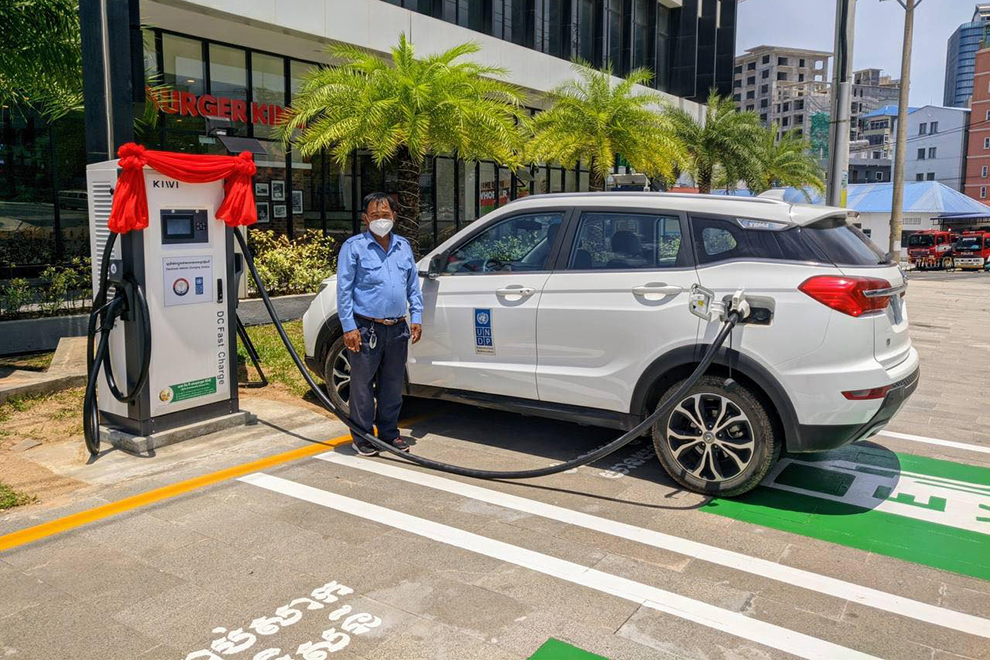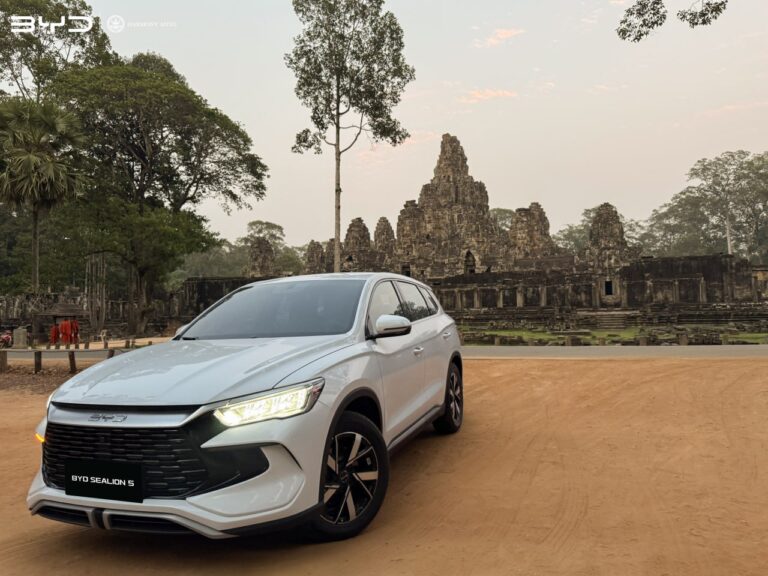The Future of Electric Vehicles in Cambodia: Is the Country Ready?

The global transition toward electric vehicles (EVs) is accelerating, with countries worldwide embracing this green technology to reduce carbon emissions and reliance on fossil fuels. Cambodia is no exception. With rising fuel prices and increasing environmental concerns, the kingdom is witnessing growing interest in EV adoption. But is Cambodia truly ready for an electric vehicle revolution? This article explores the current state of the EV market in Cambodia, the challenges and opportunities, and whether the country is prepared for a sustainable transportation future.
- 1. The Current State of the Electric Vehicles Market in Cambodia
- 2. Government Policies and Incentives Supporting Electric Vehicles Growth
- 3. Infrastructure Development: Are There Enough Charging Stations?
- 4. Challenges to Widespread Electric Vehicles Adoption in Cambodia
- 5. Opportunities for Growth in Cambodia’s EV Sector
- 6. What’s Next? The Roadmap for EV Adoption in Cambodia
- Conclusion
1. The Current State of the Electric Vehicles Market in Cambodia
The adoption of electric vehicles in Cambodia has been increasing steadily. As of mid-2024, the country has registered 3,676 EVs, including electric cars, motorcycles, and three-wheelers. Compared to previous years, this marks a significant surge, highlighting a shift in consumer preferences toward cleaner and more efficient transportation.
Key Drivers of EV Growth in Cambodia:
- Government incentives such as tax reductions on EV imports.
- Rising fuel prices, making EVs more cost-effective in the long run.
- Environmental awareness and growing concerns over air pollution in urban areas.
- Improved availability of EV models from brands like Tesla, BYD, Toyota, and local distributors.
Despite this progress, the number of EVs remains relatively small compared to gasoline-powered vehicles, emphasizing the need for a more robust push toward electrification.
2. Government Policies and Incentives Supporting Electric Vehicles Growth
To boost EV adoption, the Cambodian government has introduced several initiatives:
- National Policy on Electric Vehicles 2024-2030: A strategic plan aimed at increasing EV registration to 770,000 units by 2030.
- Tax Exemptions and Incentives: In 2021, the Ministry of Economy and Finance implemented tax breaks on EV imports, reducing costs for consumers.
- Investment in Infrastructure: The government is working with private companies to develop EV charging networks across key locations in Cambodia.
While these policies are a step in the right direction, implementation challenges remain, particularly in expanding charging infrastructure and ensuring widespread access to EV technology.
3. Infrastructure Development: Are There Enough Charging Stations?
One of the most significant challenges for EV adoption in Cambodia is the lack of charging infrastructure. As of June 2024, only 21 charging stations are operational nationwide, with most located in Phnom Penh.
Challenges to Infrastructure Expansion:
- Limited Charging Stations: The current network is insufficient to support mass EV adoption.
- Slow Deployment: Rolling out charging stations requires significant investment and planning.
- Grid Capacity Concerns: The national grid must be upgraded to handle increased electricity demand from EVs.
To address these issues, the government and private sector are working together to establish a more extensive charging network. Companies like Schneider Electric and BYD have expressed interest in expanding Cambodia’s EV infrastructure, which could help accelerate adoption.

4. Challenges to Widespread Electric Vehicles Adoption in Cambodia
While the future of EVs in Cambodia looks promising, several roadblocks must be overcome:
1. High Initial Costs
EVs remain expensive compared to traditional gasoline vehicles. While tax incentives help reduce prices, the upfront cost is still a barrier for many Cambodian consumers.
2. Limited Consumer Awareness
Many potential buyers are still unfamiliar with the benefits of EVs, including cost savings on fuel and maintenance. Public education campaigns are necessary to drive adoption.
3. Shortage of Skilled Workforce
EV maintenance requires specialized skills, but Cambodia currently lacks trained professionals in this field. Training programs and technical education initiatives are essential for long-term EV sustainability.
4. Electricity Supply and Grid Readiness
A surge in EV adoption will increase electricity demand, potentially straining Cambodia’s energy infrastructure. The government must invest in smart grid technology and renewable energy sources to support sustainable EV growth.
5. Opportunities for Growth in Cambodia’s EV Sector
Despite these challenges, Cambodia has several opportunities to foster a thriving EV industry:
1. Environmental Benefits
By switching to EVs, Cambodia can significantly reduce greenhouse gas emissions and improve air quality, especially in congested urban areas.
2. Economic Development
The EV sector presents opportunities for job creation in manufacturing, sales, and maintenance. The government can attract investment by promoting Cambodia as a hub for EV assembly and production.
3. Regional Leadership in Green Transport
Cambodia has the potential to lead Southeast Asia in EV adoption by implementing progressive policies and encouraging innovation in sustainable transport solutions.
6. What’s Next? The Roadmap for EV Adoption in Cambodia
To ensure the successful adoption of electric vehicles, Cambodia must focus on the following strategies:
- Expanding Charging Infrastructure: Establishing more charging stations across the country to support long-distance travel.
- Lowering Electric Vehicles Costs: Introducing subsidies and financing options to make EVs more affordable.
- Public Awareness Campaigns: Educating consumers on the benefits of EVs through digital marketing and community outreach programs.
- Renewable Energy Integration: Investing in solar and wind power to provide a sustainable energy source for EV charging.
With these measures in place, Cambodia can accelerate its transition toward a cleaner and more sustainable transportation system.
Conclusion
Cambodia is making significant progress in embracing electric vehicles, but challenges remain. While government policies, tax incentives, and growing consumer interest are positive signs, issues like infrastructure gaps, high costs, and grid readiness must be addressed.
The future of EVs in Cambodia depends on continued investment, public-private partnerships, and consumer education. By overcoming these hurdles, Cambodia can position itself as a leader in green transportation and contribute to a cleaner, more sustainable future.
Are you considering switching to an electric vehicle? Share your thoughts and experiences in the comments below!



